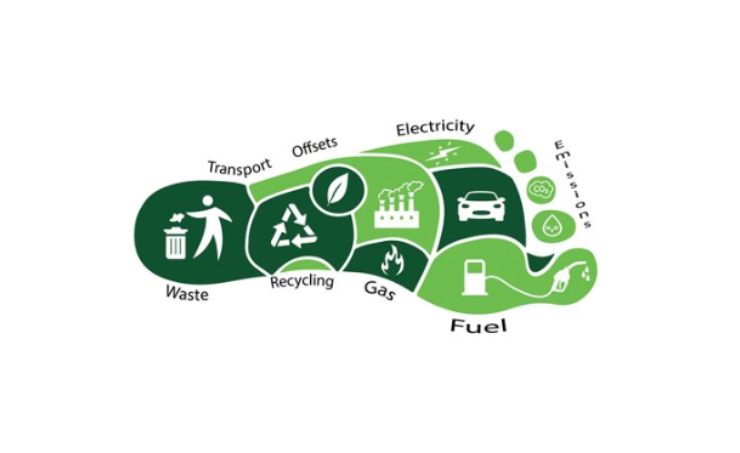Why is ESG important?
The UN-backed PRI is a progressing global initiative with over 1,600 members representing over $70 trillion in assets under management (AUM). The primary role of PRI is to further ESG’s integration into analysis and policymaking through thought leadership and the formation of tools, leadership and engagement. The SSEI has grown over the years, with many stock exchanges now directing ESG disclosure for listed companies or providing guidance on reporting on ESG matters. However, notwithstanding its quick growth into the conventional, the rise of ESG investing has been neither smooth nor direct.
At ESGRI, we assist our partners in attaining their ESG goals and making the ESG investing transition experience smooth by constantly working on the below-mentioned points.
1. ESG Reporting
ESG Reporting is immensely significant as a direct and positive impact on cash flow through top-line productivity growth, aiding cost reductions that lead to operational improvement. It assists an organisation in higher equity returns and improved credit ratings. To this effect, we solicit the following information from our partners by circulating questionnaires to comprehend the ESG frameworks used in the past and currently in use. This information helps streamline and better the already in-place frameworks and the introduction of new frameworks mandated for the organisation.
- Environment
- Social Capital
- Leadership and Governance
- Human Capital
- Business Model and Innovation
- Cyber and Digital
2. Sector Questions
Each organisation aspires and strives to be a going concern. To ensure it is financially stable to meet its obligations and continue its business for the foreseeable future, the organisation can upload information catering to the areas mentioned below. The collated information assists investment firms in comprehending the organisation’s capital requirements and making informed investment decisions based on it. On the other hand, transparently sharing information of such nature assists the organisation in raising cash funds and streamlining their allocation.
- Environmental Capital
- Business Model and Innovation
- Cyber and Digital
- Human Capital
- Leadership Governance
- Social Capital
3. Governance
Sound governance guarantees a strong underpinning for an organisation to sustain and flourish not only when the sailing is smooth but also in adversarial times. Governance is the distinction that makes an organisation survive and thrive or perish, thus making the benefits of sound governance manifold. It facilitates decision-making, from independent policymaking to distributing rights and responsibilities among diverse organisation members, including the board of directors, managers, shareholders and stakeholders. We solicit the following information to ensure it remains resilient and robust.
- Governance Policies
- Social Policies
- Cyber and Technology
- Environmental Policy
4. Suppliers
There has been an increase in multinational corporations pledging to work only with suppliers that adhere to social and environmental standards. Conventional key considerations in supply chains include technical excellence, cost-effectiveness, delivery speed and consistency. These are now giving way to sustainability factors as they are increasingly gaining importance. The following topics have thus become of particular interest to organisations, and we assist them in identifying ESG risks in supply chains and effectively managing the existing and emerging ESG supply chain risks in them.
- Environmental Topics
- Social Topics
- Governance Topics
- Business Model
5. Supplier Management
It enables organisations to perceive probable risks and monitor supplier compliance easily. We assist the organisations in assessing the below-mentioned documents, ensuring long-term strategic relationships that lead to high levels of engagement. Constant back-and-forth feedback on processes and standards ensures they are as effective as possible.
- Supplier Code of Conduct
- Anti-bribery & Corruption Policy
- Work & Health and Safety Policy
- Whistleblower Policy
- Diversity & Equity and Inclusion Policy
- Climate Change Policy
- Disaster Recovery and Business Continuity Plan
- ESG Policy
- Conflict of Interest
- Human Rights and Labour Policy
- Modern Slavery Act Statement
- Sustainability Policy
- Information and Cyber Security Policy
- Breach Detection and Reporting
6. Sustainable Development Goals (SDGs)
At ESGRI, we are steadfast in furthering and upholding the cause for sustainable development. The UN set up SDGs, which provide a comprehensive blueprint for dignity, peace and prosperity for people and the planet, intending to achieve them by 2030. To this effect, we solicit the following information from organisations ensuring a positive impact on sustainable development.
- No Poverty
- Zero Hunger
- Good Health and Well-being
- Quality Education
- Gender Equality
- Clean Water and Sanitation
- Affordable and Clean Energy
- Decent Work and Economic Growth
- Industry, Innovation and Infrastructure
- Reduced Inequalities
- Sustainable Cities and Communities
- Responsible Consumption Production
- Climate Action
- Life Below Water
- Life on Land
- Peace, Justice and Strong Institutions
- Partnerships for the Goals
7. Carbon Footprint
At ESGRI, we are mindful that our environment is fragile and advancing the cause of environmental preservation must be our utmost priority collectively. One such step which helps in environment preservation is the appraisal of an organisation’s carbon footprint. It enables the organisation to comprehend activities resulting in carbon emissions taking appropriate actions to reduce them. We encourage organisations to share the following carbon footprint information to help manage it, ultimately saving money, cutting reputational risks and creating new business opportunities.
- Scope I- Includes building consumption, transport consumption, refrigerants and additional information
- Scope II- Includes electricity consumption type and green power
- Scope III- Includes travel, employee commuting, waste, purchased goods & services, capital goods, upstream and downstream, transportation & distribution and investments
8. Board Skills
Administrators in an organisation fervently envisage transforming the world and building an organisation’s resilience and long-term value at the same time. On the other hand, stockholders, personnel, patrons and the broader community assume a company to address ESG urgencies and prospects. Herein lies the vital role played by the skills matrix as it assists in identifying the skills, knowledge, experience and capabilities desired of the board members, enabling it to meet the current and future challenges of the organisation.
9. Management
At the core of ESG policymaking is the management assuming the responsibility to develop and oversee robust environmental, social and corporate governance policies and procedures. It requires organisations to forge an ecosystem, often acting as an incubator, to foster management and leadership expertise and skill.
10. ESG Products
Businesses typically have profit-centric behaviour with the costs pushed onto society and nature. Investors now demand that organisations take necessary actions while making investment decisions by considering the environmental, social and governance (ESG) factors (the three standards of sustainable finance) of an economic activity or project. It contributes to an increase in long-term investments in sustainable economic activities and projects. Safeguards in place by regulators, institutional investors and asset managers globally have ensured more transparency and accountability from organisations. As an organisation, you may select any of the below products, and we will help provide new products or services information available to your business due to your ESG commitments.
- Consumer Goods
- Food & Beverages
- Technology & Communications
- Hospitality
- Infrastructure
- Transportation
- Healthcare
- Renewables & Alternative Energy
- Professional Services
- Resource Transformation
- Mining
ESG is a crucial commercial and growth prospect. For leading companies, it will open avenues for innovation across products, services and even business models, allowing them to shape the future of their industry and stay a step ahead of disruption.
Bibliography
1. Image Source- Auditboard, 2022. Blog-ESG. [Online]
Available at: https://www.auditboard.com/blog/integrated-esg-reporting-lessons-learned-from-sox/
[Accessed 3 March 2023].
2. Image Source- Dreamstime, n.d. [Online]
Available at: https://www.dreamstime.com/supplier-management-word-cloud-made-text-supplier-management-word-cloud-made-text-image127120557
[Accessed 3 March 2023].
3. Image Source- Eco Matcher, 2019. Blog. [Online]
Available at: https://www.ecomatcher.com/the-basics-of-a-carbon-footprint
[Accessed 3 March 2023].
4. Image Source- GPM-Driving Sustainable Change, 2022. [Online]
Available at: https://gpm-emea.org/organizations-should-be-aware-that-esg-reporting-is-not-real-sustainability
[Accessed 3 March 2023].




